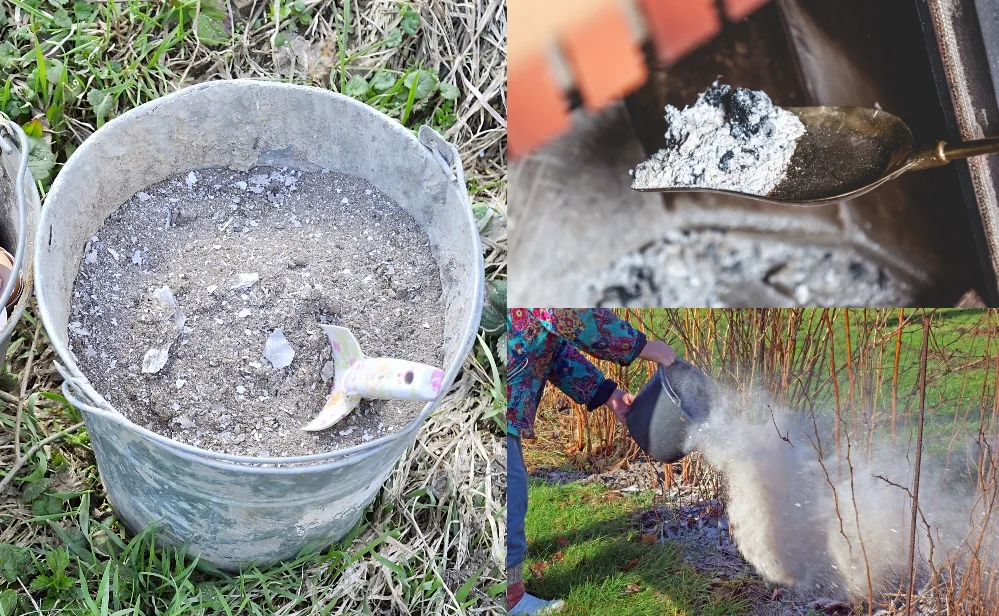
When your primary heating source is wood, you find yourself cleaning out the wood stove quite a bit during those colder months of the year.
Before long you’re dumping out your ash bucket once or twice a week.
But where? What do you do with all of that ash?
Let’s help you put a dent in those buckets of powdery gray byproduct.
The resulting ashes and chunks of charcoal are packed with minerals. Plus its natural alkalinity and mildly abrasive texture make wood ash a workhorse around the home and garden.
Even if you only use a handful of these suggestions, you’ll probably end up with an empty ash bucket come spring.
Safety First
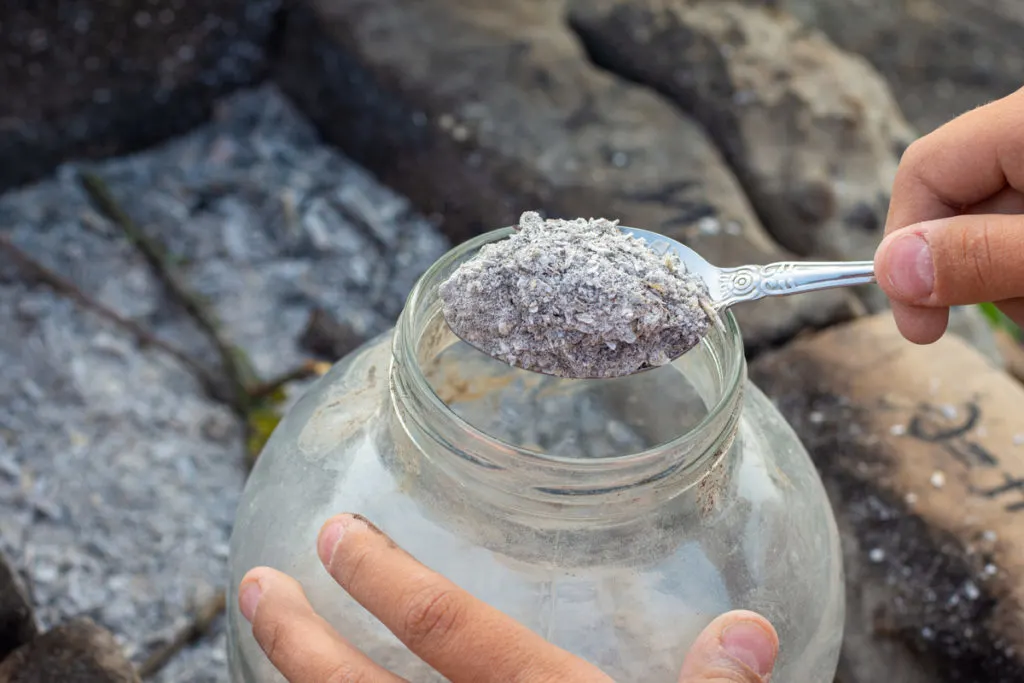
It’s important to note that this list assumes you are burning clean wood and not chemically treated wood such as pressure treated, stained, or painted wood.
If you wouldn’t roast a hot dog over the fire it came from, you shouldn’t be using it around your house.
Hardwoods generally have more nutrients in them than softer woods like pine, but softwoods render softer ash than hardwoods.
Embers can stay hot for days. Make sure your wood ash is completely cool before using it around your home.
Wear gloves when working with wood ash as it can be caustic. Be extremely careful when creating or using lye from wood ash as it is also caustic and can cause severe burns.
Wood Ash Uses In the Garden
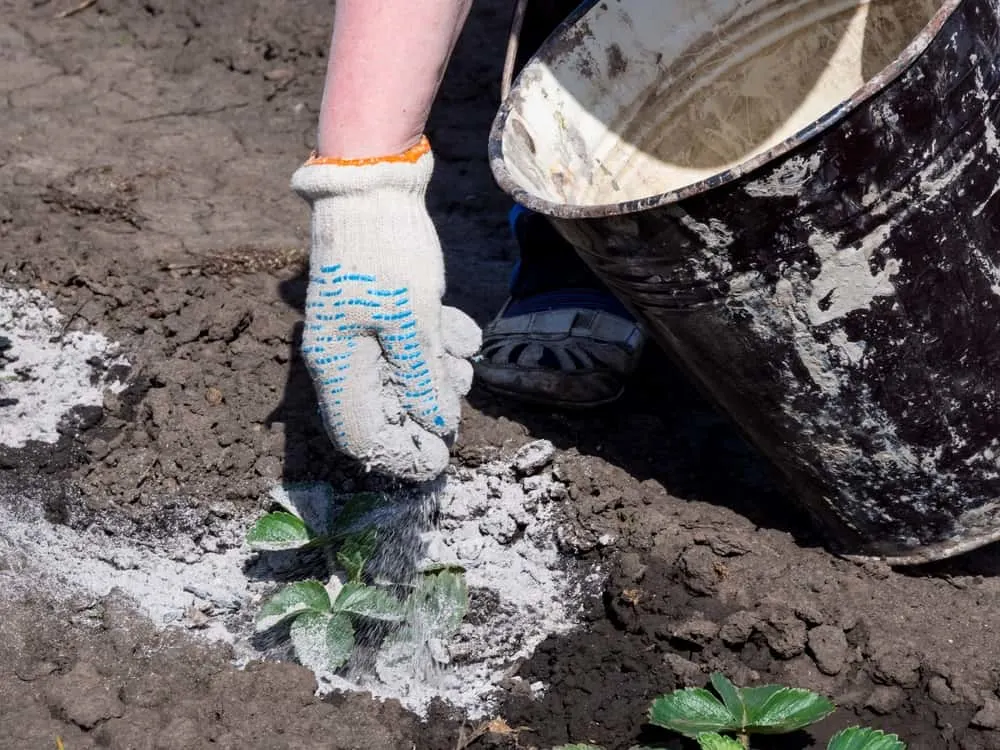
Store your ash out of the elements when using it in the garden.
Wood ash is enriched with many of the same minerals that it contained as a tree – calcium, potassium, magnesium and other trace minerals, to name a few.
If it’s left out in the rain, it will quickly lose all of its beneficial water-soluble minerals.
And don’t use wood ash for plants that prefer acidic soil such as potatoes, blueberries, hydrangea, azaleas, and rhododendron.
1. Correct Acidic Soil
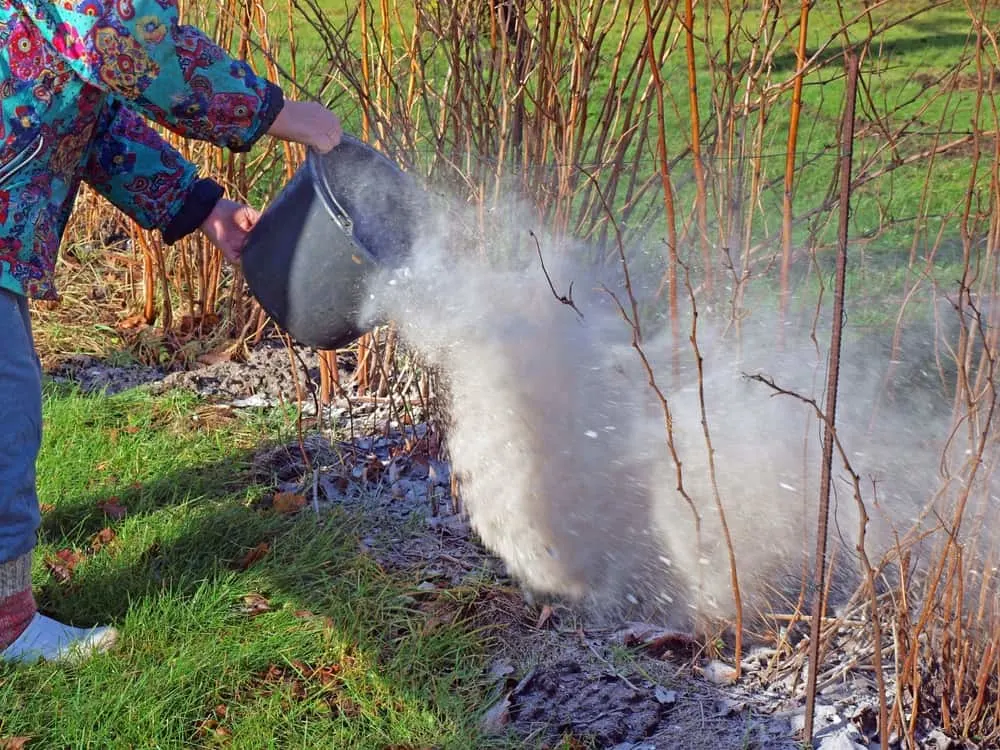
Wood ash is an excellent soil amendment for overly acidic soil.
According to the Cooperative Extension at the University of California Davis you can use those ashes to help balance the pH of acidic soil.
It’s best to test the pH of your soil first before applying, but generally speaking, the Cooperative Extension suggests for every 100 square feet you’ll apply 5-10 pounds of ash.
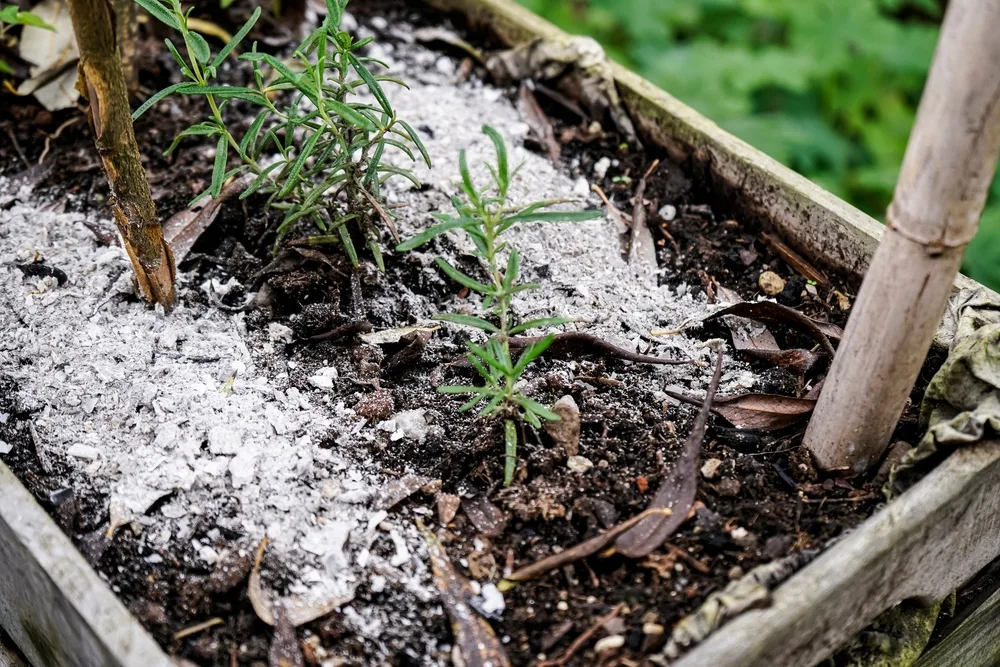
The best time to do this is before planting when you can till it directly into the soil. If you do apply your wood ash to soil with young plants already growing, be sure to rinse them down afterward as the ash can burn the tender leaves.
2. Boost Your Compost
To supercharge your compost heap throw in some ash, this boosts the nutrient-dense microbial environment that’s cooking in your compost.
Those little chunks of porous charcoal mixed in with the ashes provide your compost with much-needed oxygen making for very happy microbes.
The porous nature of charcoal also means all of those minerals from the ash are absorbed and kept into your compost instead of being leached out by rain.
3. Keep Bears Out of Your Compost

Ashley from Practical Self Reliance says that dusting your compost pile with wood ash keeps the bears from mistaking it for an all you can eat buffet.
Again, remember that wood ash is alkaline, so don’t add too much. Experiment with a trowel-full at a time and consider testing with a pH kit.
4. Stop Snails and Slugs in their Slimy Tracks
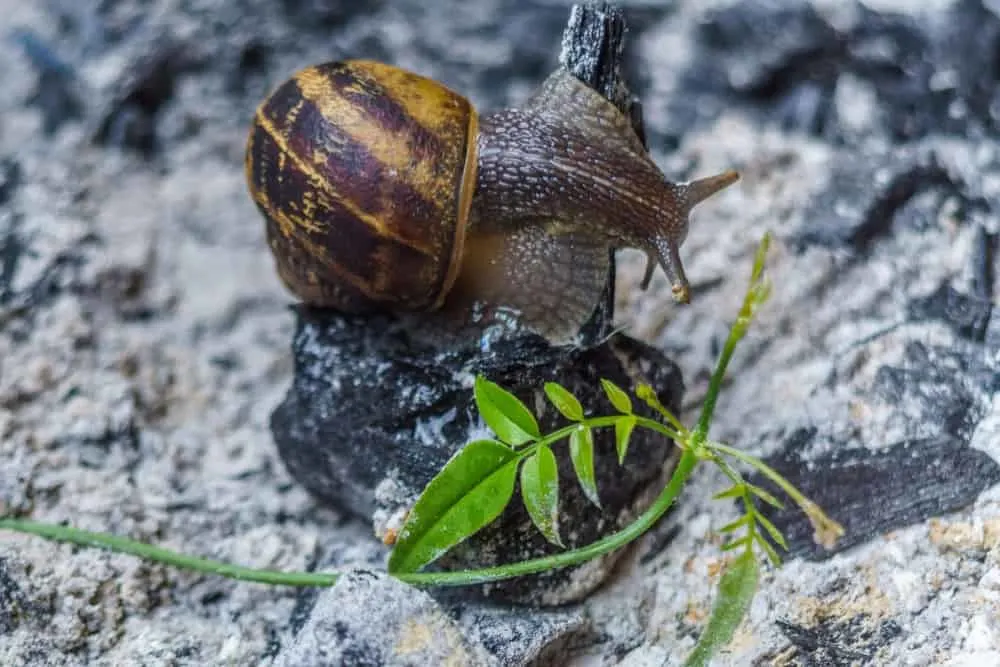
Snails and slugs, cute as they may be, can wreak havoc on a garden. There is nothing more disappointing than coming out one day to find your cabbages looking like Battenberg lace.
Stop the slimy little creeps in their tracks by making a circle of ash around plants susceptible to snails and slugs.
I feel like a benevolent white witch casting a circle of protection spell around my precious shitake and oyster mushroom logs with the ashes provided by our woodstove in the shop. Though shalt not touch my mushrooms!
5. Bust Blossom End Rot
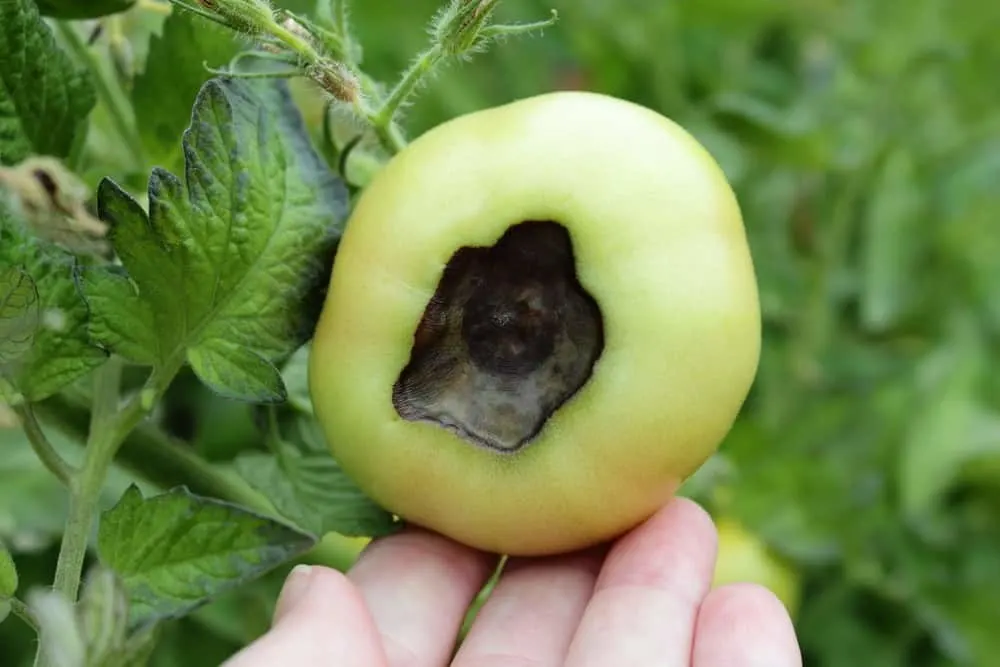
Seeing that first black splotch on the bottom of your gorgeous tomatoes is enough to bring anyone to tears because you know it’s just the beginning of more blossom end rot.
Head it off at the start of the season by giving susceptible plants an extra dose of calcium.
When you are planting tomatoes, squash, cucumbers, and peppers; toss a small handful of wood ash into the hole before plunking your plant in the dirt.
Related Reading: How To Deal With Blossom End Rot In Tomatoes, Zucchini & Other Plants
Alternatively, try this brilliant homemade tomato fertilizer recipe that includes a generous dose of wood ash.
6. Put the Kibosh on Pond Algae
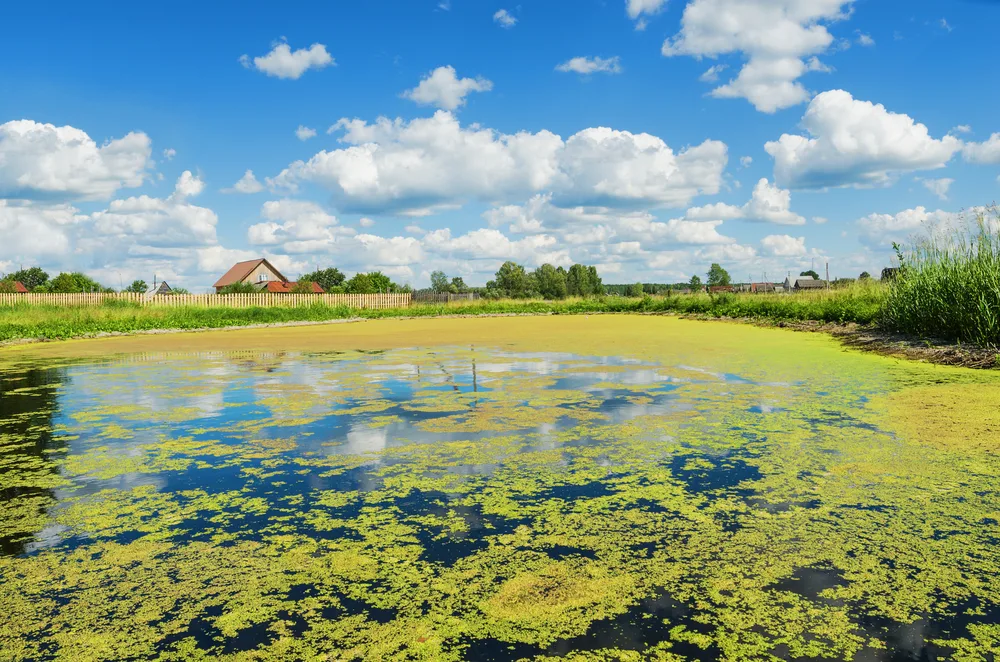
Give your aquatic plants the upper hand by feeding them potassium-rich wood ash. In turn, they will thrive, leaving the algae without the nutrients it needs to survive. Bye, Bye, algae bloom!
When it comes to using ashes in the pond, a little goes a long way. Off the Grid News advises using roughly one tablespoon per 1,000 gallons of water.
If you aren’t sure of your water volume, proceed with caution; start small and give it a few days before adding more ash.
7. Save Crops from Frost Damage
When the temperatures start to dip in the fall, nothing can strike fear in the heart of a gardener quicker than the threat of a frost.
I still recall my grandmother “tucking in” the tomatoes on cold nights with old bedsheets. No worries, dust your plants with some powdery wood ash to prevent frost damage.
Pets, Poultry, and Livestock
8. Dust-Bathing Birds
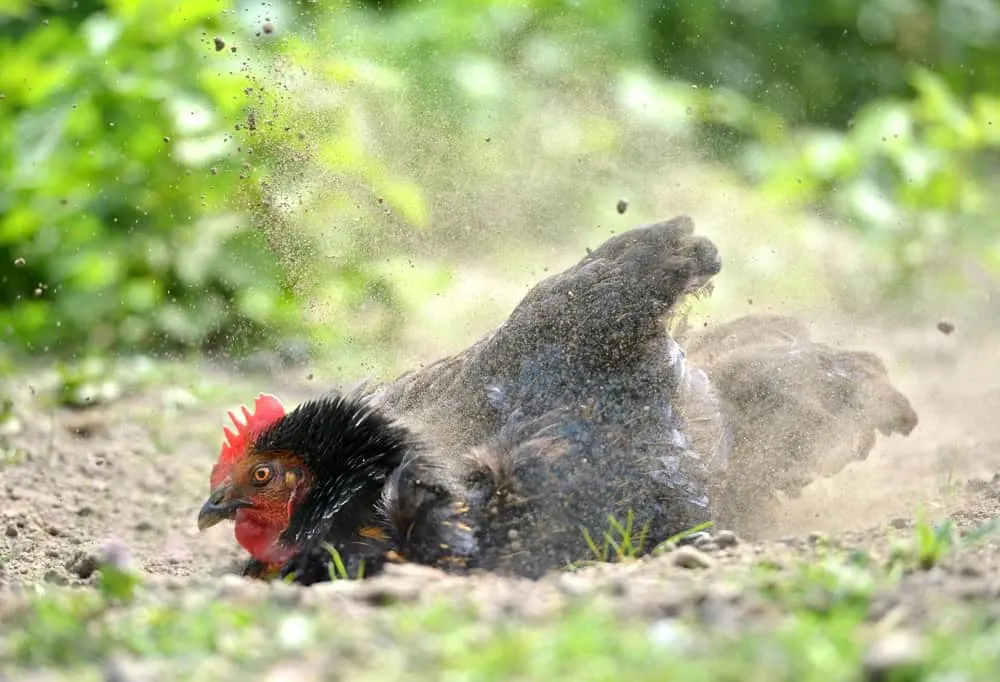
Chickens dust bathe to control pests, adding ashes to their dust bath helps to kill critters like mites, fleas, and lice in much the same way that diatomaceous earth works.
Give your birds the spa treatment with a few trowels of ash sprinkled around their bathing area. Cucumber water and fluffy bathrobes are optional.
Here’s our tutorial for making your own chicken dust bath in just two minutes.
9. Powder Your Pets
In the same vein, rubbing ashes into your dog or cat’s coat can kill fleas as well as deodorize their fur.
I’m going to go out on a limb here and guess this is easier to do with dogs than it is with cats. But give it a try if you have an especially docile cat or a good thick pair of leather gauntlets. Good luck!
10. Don’t Stop There
This trick works equally well for livestock. Dust your goats, cows, donkeys, bunnies and other hardworking members of your homestead with a little wood ash to help keep pests at bay for them too. They’ll be happier and healthier.
11. Deodorize Your Chicken Coop
As much as I love the personality of a coop full of hens, they sure are known to create a stench.
Put a good thick layer of wood ash, complete with charcoal chunks, down in the chicken coop before adding whatever litter you use on top to keep your chicken coop fresh. This works especially well with the deep-litter method.
12. A Brita for Your Bunnies and Birds
Dig out a chunk or two of the charcoal from your wood ash and toss it in your rabbit water bottles or your poultry waterer to help keep algae from growing as well as other nasties.
Be sure to replace it periodically with a fresh piece of charcoal. Every-bunny deserves fresh water.
13. Boost Your Hen’s Laying Power
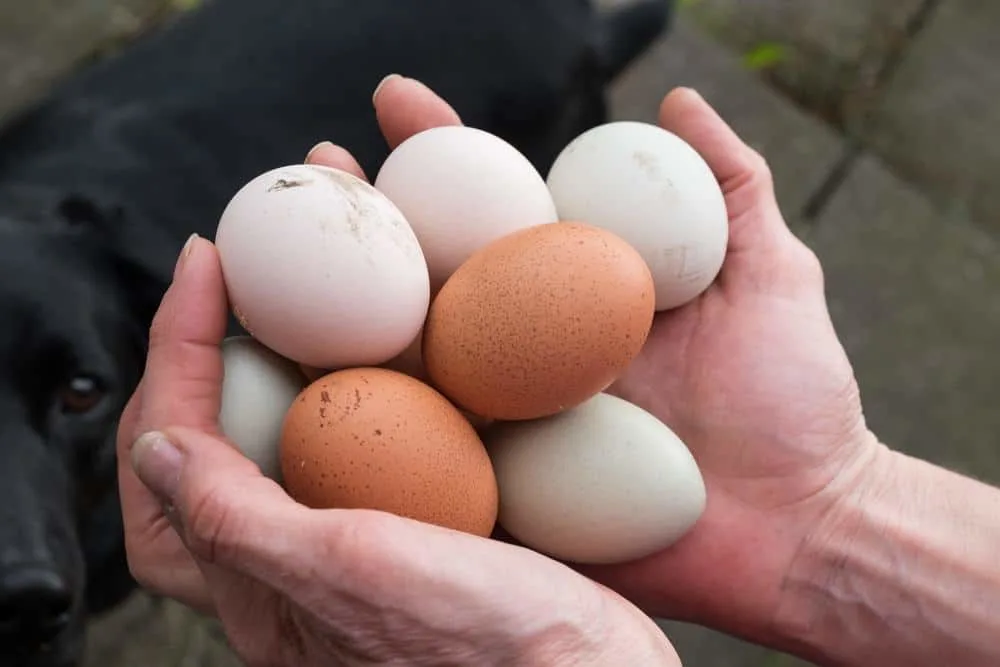
The lovely Lisa over at Fresh Eggs Daily suggests using wood ash to supplement your flock’s feed.
In turn, you will be rewarded with better lay rates and longer laying periods.
Mix in the wood ash with your chicken feed at a 1% ratio. She says this can even help to reduce the smell of their, ahem, exhaust.
14. Control Litter Box Odor
You guessed it, the odor-absorbing power of charcoal saves the day again.
Wood ash was the original cat litter, after all, used by cat owners before the invention of commercial clay litters. Sprinkle a cup of ashes with a few smaller bits of charcoal into clean cat litter and mix it in.
Keep your home smelling cat-free—even if you have a herd.
15. Undo a Skunk Encounter
It’s every dog owner’s worst nightmare, and it always seems to happen at night as you’re getting ready for bed.
“What’s that in the yard? Are those eyes? No! Sparky! Sparky come back here!”
Too late.
Usually, whatever you wash your pet with doesn’t completely get rid of the smell. After you have bathed and dried your precious wildlife ambassador rub them down with wood ash and work it into their fur. That should finish off whatever the soap didn’t undo.
Around the Home
When you’re cleaning out the wood stove, don’t take that ash bucket too far. There are so many uses for it around the house.
16. Fireplace Glass Cleaner
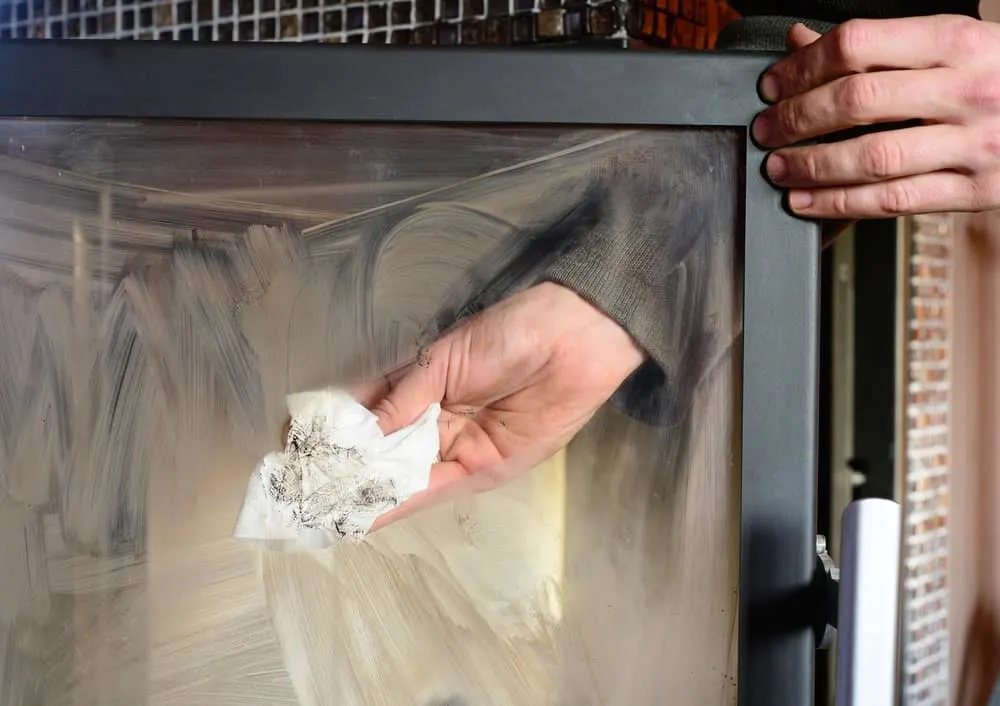
If you have glass doors on your fireplace or woodstove, they can become stained with creosote blocking your view of those beautiful dancing flames.
Dab a bit of the powdery ash on a damp sponge or cloth and use it to scrub the creosote away.
Wait for your woodstove or fireplace to cool down completely before cleaning glass.
17. Glass Top Stove Cleaner
The same method can be used to clean your glass top stove. For stubborn, cooked on gunk, make a paste using the ash and a little water.
You’ll want to be sure there aren’t any charcoal pieces in your paste, so be sure you are using only the fine powdery ash.
18. Make Soap
This one almost seems obvious since it’s how we’ve been making soap since day one.
Here’s a great ‘How To’ for making soap using the ashes from your wood stove.
A word of caution: lye is caustic and can cause burns, be careful, and wear the proper personal protective equipment.
19. Keep Your Silver Shiny
I don’t know of anyone that enjoys polishing silver, but you can use wood ash to make the job a little easier.
You’ll want to make a thick paste using the fluffy white ash and some water.
Smear the paste on your silver item and let it sit for a few minutes before wiping it off.
Bye, bye tarnish; hello shiny!
Use a dab of ash on a felt cloth to buff your silver to a high sheen then rinse and dry well. You can also polish brass the same way.
20. Clean Up Your Silver Jewelry
Before you pitch that cloth with the ash on it in the washing machine, use it to clean up dingy-looking silver jewelry as well.
I’ve used this tip for years myself.
For necklaces, pinch the chain lightly with the ash-coated flannel piece between your fingers, and then pull the chain through your fingers. A few passes will restore that beautiful white, gleam to your jewelry. Rub and polish other pieces with the cloth adding more ashes as needed.
For larger or more finicky pieces, use the paste method as mentioned above.
Be sure to wash and dry your jewelry after you polish it.
21. Freshen Up Your Fridge/Freezer
Much in the same way that baking soda absorbs odors, wood ash will do the same. Only, you already have an abundance of the stuff and don’t have to pick it up at the store.
Use about a cup of wood ash, making sure you have chunks of charcoal as well. Put it in a tin can or a small paper bag towards the back of your fridge or freezer. Be sure to change it out periodically.
If your fridge is already a little on the stinky side, change the wood ash every few days until the smell is gone.
22. Repel Mice and Other Household Pests
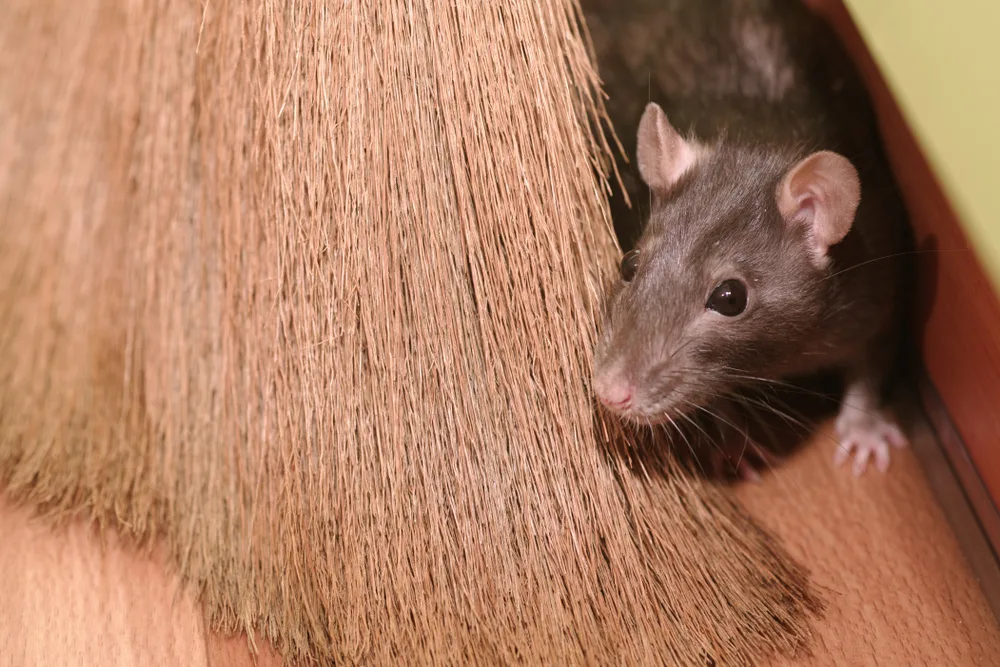
There is something about ashes that drives mice, rats, cockroaches, and other common household pests away.
Use this all-natural pest control to keep them out of your home without resorting to dangerous and toxic chemicals. Sprinkle it in the corners of your attic, garage, basement, and pantry.
I like to sprinkle it in the corners of my kitchen cupboards to ensure no mice get a free meal.
23. Use as a Desiccant
Again because of its similarities to baking soda, wood ash makes a good desiccant.
Place tin cans filled with wood ash in those dank, musty corners around your home and garage to pull moisture out of the air. You’ll want to make sure you have charcoal pieces mixed in with your ashes as well.
24. Crystal Clear Wine
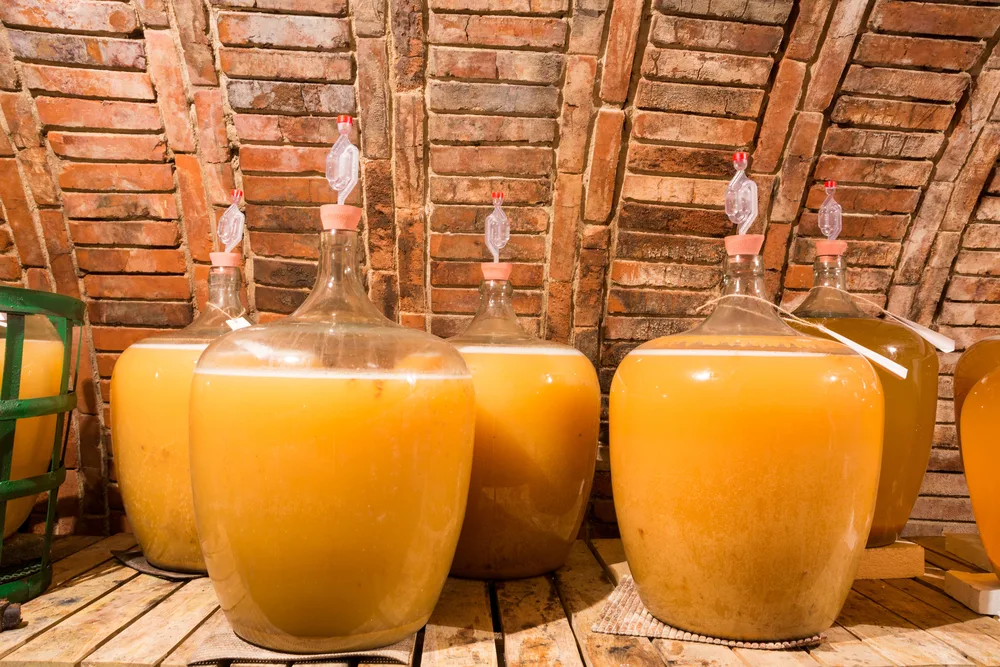
If your latest batch of homemade wine is looking a little cloudy, use the charcoal from your wood ash as a filter. Put a sterilized funnel fitted with a coffee filter in an empty sterilized carboy and top it off with a handful of charcoal pieces. Rack your wine into the new carboy over the charcoal. Cheers!
25. Protect Wool and Other Fine Fabrics
Protect clothes and blankets from moth damage by giving them a little dusting of fine wood ash before putting them into storage for the season.
Simply brush off the ash and launder as usual when you bring them out of storage again.
26. Save Your Fiber Stash
As a knitter of 37 years, my heart skips a beat anytime I see a moth in the house.
Those little winged trouble makers can decimate your beautiful fiber if left to their own devices. You can keep your precious stash safe in the same way as your stored clothes.
Pat your yarn or roving down with some ash if you plan on storing it for some time before using it. When you are ready to knit or spin, simply brush it or shake it off. It will rinse right out when you set your twist or block your finished piece.
Health and Beauty
27. Dry Shampoo
Every hair care company out there has a dry shampoo these days. It took them all long enough to catch on.
Wood ash has been used as a dry shampoo long before the days of lather, rinse, repeat. Start with a small amount, a pinch or two of powdery ash and apply it to your part. Work the ash into your scalp and roots as you would a normal shampoo. I find it helps if you give your hair a good scruffle. Wait a few minutes for the wood ash to absorb the excess oil then flip your head down and fluff your hair again to shake out any excess. Finish by brushing your hair out.
You look marvelous, darling!
28. Wound Care
Wood ash has been used to treat wounds for centuries.
It’s thought to have antibacterial properties and to speed clotting. There was even a scientific study out of ISRA University published back in 2009, which showed that wounds (to a rabbit) that were treated with wood ash healed quicker than those that were not.
Even if you aren’t up to trying it yourself, it may come in handy in a pinch for your livestock.
29. Wood Ash Toothpaste
Yup, you can even brush your teeth with this stuff. Although, in this case, it would be best to use ash from a soft tree, like pine. I don’t know what the stance on this is among dentists, but I, for one, am currently using a commercial toothpaste made with bamboo ash, and my teeth feel great.
30. Deodorize Yourself
While I wouldn’t necessarily dab wood ash paste under my pits to keep me smelling sweet, we’ve learned that wood ash does absorb odors.
This is great news for hunters looking to mask their smell. Grab a handful and rub it over any exposed skin (avoiding your face and eyes). Patting it into your clothes will help as well.
31. Natural Tick Repellent

Just as wood ash helps your pets and other animals stay pest-free, you can use wood ash to protect yourself when you’re out in the woods. Granted, you’re going to look ghostly, but ghostly is better than Lyme disease any day.
Apply in much the same manner as above, although you may want to apply to your bare arms and legs as well.
Around the Homestead
There are so many uses for wood ash outside the home. You’re going to want to keep a few buckets around the yard to have on hand.
32. Fire Extinguisher
Ash makes an inexpensive fire extinguisher, smothering flames and depriving them of oxygen. You’ll want to keep a few buckets at the ready in places where a fire could easily break out: a blacksmith shop, welding set up, fire pit, or if you have hay stored.
33. A Blacksmith’s Best Friend
When I was a kid, I remember watching my dad out in his blacksmith’s shop hammering away on one project or another. It all seemed very cathartic. And sweaty. Dad had a large can full of ash to use in the process of annealing steel. The ash would insulate the metal, allowing it to cool down slowly.
34. Natural Charcoal Briquettes
Speaking of blacksmithing if you want to sift your wood ash you will be rewarded with charcoal that can be used in a coal forge or to fire up the grill for some hamburgers.
35. Grill Cleaner
And speaking of grilling, once again wood ash saves the day and makes clean up easier.
Mix up a thick paste using ash and water and apply liberally to your grates and the inside of the grill. The ash and water will mix with the animal fats leftover from grilling and make a kind of natural soap.
Let them sit for a few minutes and then give them a good scrubbing. Rinse well with water. You’ll want to wear some gloves for this chore; the natural soap can be pretty drying.
36. Make a Mini Root Cellar
Ash is a great insulator and is the perfect filler for a mini-root cellar. Dig a hole down in the ground and put down a layer of ash a few inches thick. Put your produce in it, making sure none of it is touching each other. Cover with more ash, layer, and repeat.
It’s like making a big dirty cake!
Put a good layer of ash on top and cover with a piece of wood, and enjoy your harvest well into the winter months.
37. Save Seeds for Next Year
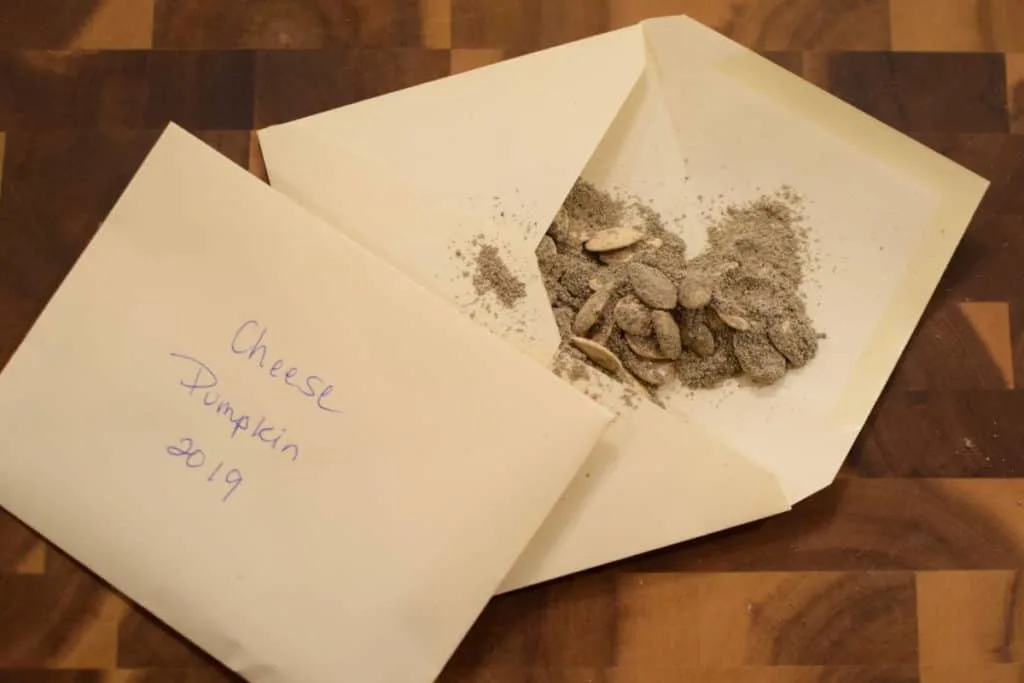
Seeds that aren’t properly stored lose their viability and won’t germinate. Saving seeds in a good insulating and moisture absorbing medium is key. Add ashes to whatever container you are storing seeds in to cut down moisture and to protect your seeds.
38. Sop Up Oil Spills in the Garage
Just once I would like to be able to change the oil on my Subaru without making a mess and splashing oil on the concrete.
If you’re anything like me, you can use that wood ash to soak up your oil spills. Then sweep it up and dispose of it properly.
39. Hide Stains in Concrete
And now that you’ve cleaned up your little oil spill put down another layer of ash and scuff it into the concrete. Ash is great for hiding stains and discoloration on concrete.
40. Pottery Glaze from the Woodstove
A glaze for pottery can be created using wood ash. Traditionally these glazes hale from East Asia. Here is an excellent article detailing the history of ash glazes as well as how to make your own ash glaze.
41. Encourage Ants to Relocate
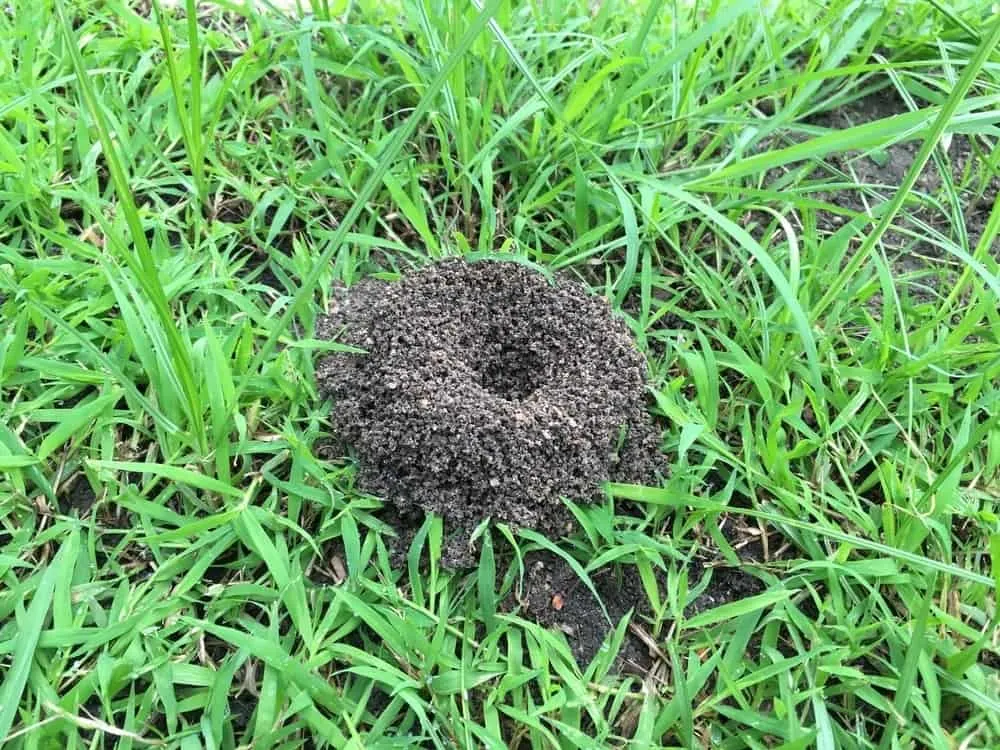
Dumping ashes on an ant hill will encourage the wee pests to pack up and find another place to live. They aren’t able to move the ash and so have to move out of that nest.
42. Pet Safe Ice Melt
Keep your sidewalks and your pets safe this winter. When the ice begins to accumulate, sprinkle wood ash on your walkways to melt it off. You will have clear sidewalks without the worry of using an ice-melting product that could be harmful to your pets.
A word to the wise, you’ll want to adopt a “no shoes in the house” policy as this could get messy.
Wood Ash in the Kitchen
43. Wood Ash Garnish
For your next dinner party, try a wood ash garnish. In some trendy restaurant’s chefs sprinkle a bit of ash on their creations to add a bit of smoky flavor and as a garnish that is pleasing to the eye.
While I love this idea, I would caution you to be certain that the wood you have burned is not chemically treated, painted, stained, etc. If you wouldn’t cook over a fire with that wood, then you certainly shouldn’t sprinkle the ash on your food.
44. Nixtamalization
Nixtamalization is the process of steeping corn in an alkaline solution. You can make this solution using wood ash and hot water. Native Americans used this process to make hominy, and some still do today. Further south in Mexico and Central America the same process is used to process corn for tortillas and tamales. There are plenty of tutorials on the web for the adventurous chef.
45. Say Cheese
If you want to start making your cheese, save those ashes. Some cheese rinds are prepared with ashes to protect the cheese as it ages as well as enhancing the flavor due to the alkaline properties.
And You Were Going to Throw Your Ashes Away
With a list like this, I’m sure you can see the benefits of putting that byproduct to use around your homestead. For something so simple its usefulness around the home and garden is pretty impressive. So throw another log on the fire, you’re running out of ashes.
Pin This To Save For Later
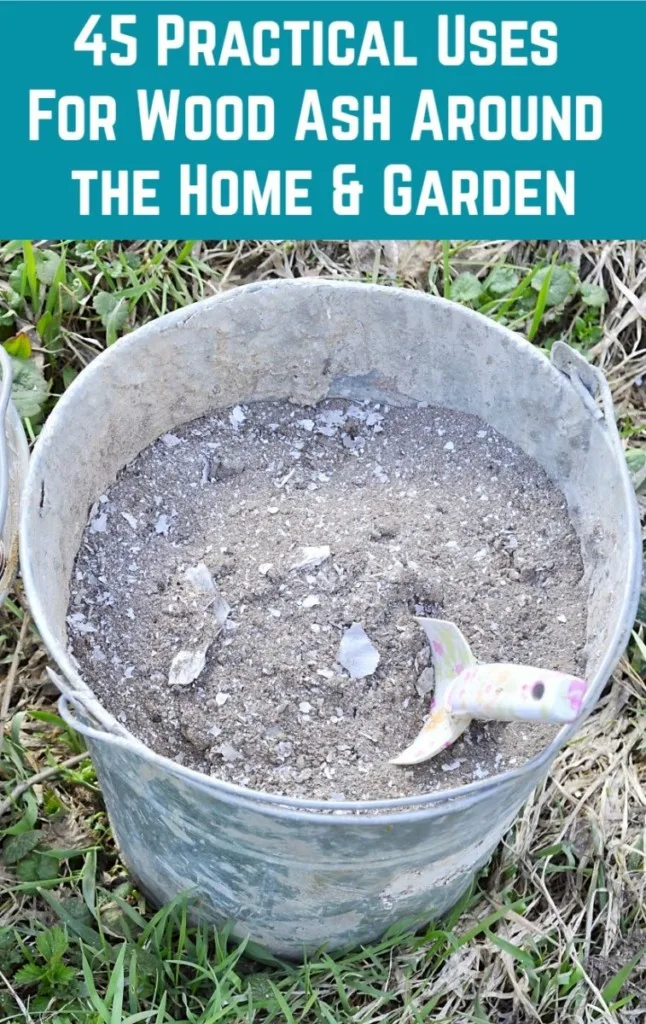
Read Next: 15 Brilliant Uses For Eggshells In The Home & Garden + How To Eat Them

Get the famous Rural Sprout newsletter delivered to your inbox.
Including Sunday musings from our editor, Tracey, as well as “What’s Up Wednesday” our roundup of what’s in season and new article updates and alerts.


